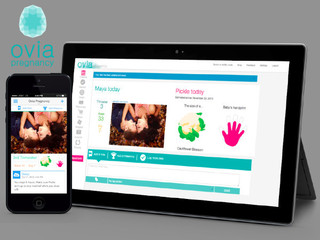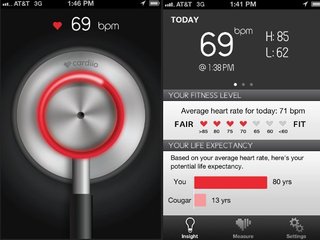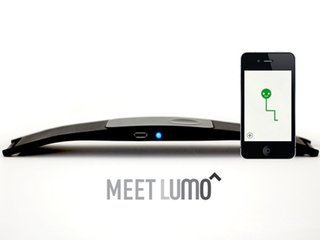MyFitnessPal launches support tools for patients on GLP-1 meds
The tools include content such as educational videos, recipes, and daily nutrition tips
Read more...
Google wants your eyeballs. But while Google Glass is chatting, navigating, and taking pictures of non-consenting people, Google’s new smart contact lens has a decidedly more urgent focus: helping people manage diabetes.
Google announced the ongoing project late Thursday and explained that over the years, research has shown that different body fluids—like tears—can be measured to check glucose levels. But of course, the current default method for checking glucose levels is to prick your finger to test your blood, which is painful and inconvenient (remember that B.B. King commercial?).
And diabetes is on the rise. A whopping 43% of U.S. adults either have diabetes or prediabetes (also known as metabolic syndrome). And the majority of prediabetic people don’t even know it because prediabetes tends to come part and parcel with obesity, and more than one-third of U.S. adults are obese. So, in short, we’re going to have many more diabetics in the near future.
Google is testing a smart contact lens that would measure glucose levels in the wearer’s tears via a tiny chip and mini glucose sensor embedded between two layers of contact lens material. Project co-founders Brian Otis and Babak Parvis say they’re testing prototypes that would test glucose levels once per second, and that they’re looking into integrating tiny LED lights that would flash to let the wearer know when glucose levels have gone above or dropped below certain thresholds.
The technology is still in its early stages so it probably won’t hit the market for a while. Otis and Parvis say they’re in talks with the FDA and are on the lookout for partners that will help them take the technology to market.
“These partners will use our technology for a smart contact lens and develop apps that would make the measurements available to the wearer and their doctor,” they say in a blog post.
Smart medical devices are on the rise in the Quantified Self movement. Lumo BodyTech just unveiled its newest device, Lumo Lift, for upper body posture, which follows on the heels of its successful lower-back posture monitor Lumo Back. Several startups—notably Cardiio and AliveCor—have come out with mobile heart monitors that use your smartphone to gauge your heart rate (Cardiio’s is a touchless heart rate monitor that measures the light reflecting off your skin). Ovuline (which doesn’t have a device, per se) uses a mobile app to help women track their fertility to pinpoint the optimal time to conceive.
And then of course, you have your sleep monitors and activity trackers. But dedicated devices for specific medical conditions are going to be an increasingly interesting space to watch.
The tools include content such as educational videos, recipes, and daily nutrition tips
Read more...Advances in technology, like in vitro and microfluidics, have helped advance research
Read more...Robots are taking over the heavy lifting work inside warehouses
Read more...



